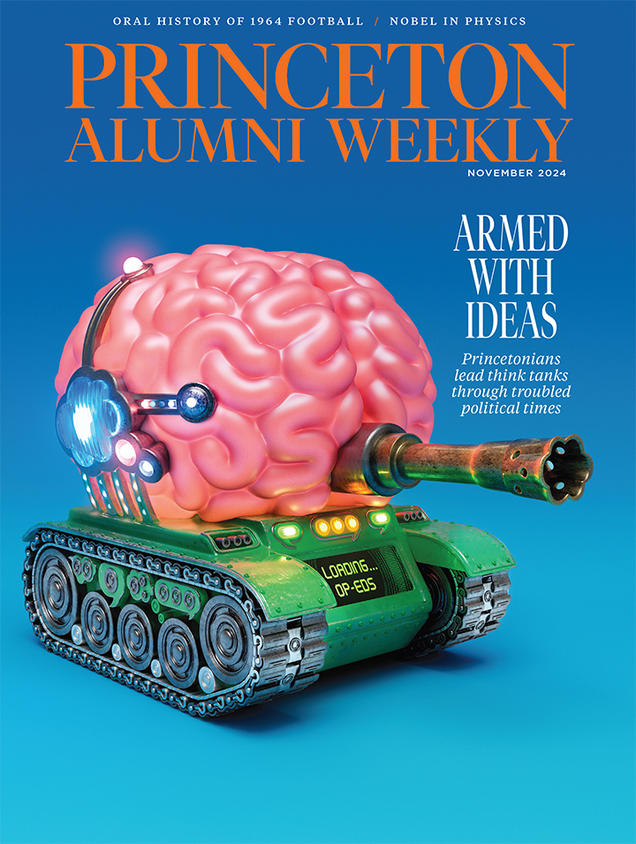Robert R. Deutsch ’36
Bob died Feb. 22, 2005. He was a recent resident of Venice, Fla. For many years he summered in Yarmouth Port, Mass., and wintered on Water Island, U.S.Virgin Islands.
He graduated in 1932 from Newark Academy, where he was on the varsity track team. At Princeton he majored in economics. In 1959 he married Ethel Lee Kauffman, daughter of James L. Kauffman '08. She died in 1986.
Bob's entire working career of 34 years was devoted to Western Electric. He retired in 1970 as a senior contract specialist. His hobbies were sports, boating, fishing, and travel.
He is survived by a daughter, Jill W. Clark; a son, Jay McEvitt; six grandchildren, and four great-grandchildren.
The Class of 1936
Paw in print

November 2024
Princetonians lead think tanks; the perfect football season of 1964; Nobel in physics.
Book Club.
Join and Read With Us.

